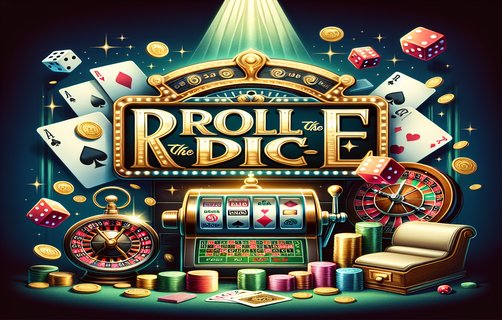Exploring the Intersections of Fantasy, Strategy, and User Experience in Gaming
In the world of gaming, the convergence of various themes and strategies creates rich experiences that can captivate players. One notable area of exploration is the intertwining of fantasy elements with strategic games like blackjack and poker. Here, we delve into the myriad ways these genres resonate with players, enhancing user experience while providing opportunities for tactical mastery.
Fantasy themes in gaming often create immersive worlds where players feel they can escape from reality. Incorporating elements of magic, mythical creatures, and epic quests, these themes foster connection and emotional engagement. For instance, consider a blackjack game set in a mystical realm where players are not just betting chips but gaining the favor of ancient beings. This transition of a traditional card game into a fantastical narrative transforms the stakes from mere monetary gain to one of adventure and exploration, making the experience more enriching.
When discussing strategy, blackjack and poker offer unique challenges that test players' analytical skills. The fundamental strategies in blackjack, such as card counting and knowing when to hit or stand, resemble the tactical decision-making in role-playing games. Players must assess probabilities just as they would gauge combat scenarios in a fantasy setting. In poker, the concept of table awareness becomes paramount, as players must read their opponents much like a hero must decipher allies from foes in a high-stakes conflict.
The all-in strategy in poker is a decisive move that can turn the tide of the game, akin to a hero making a stand against insurmountable odds. Players engage in not just a game of luck but also a battle of wits, strategy, and perhaps a touch of lore-following, which enhances the narrative depth. This bold execution mirrors the transformative moments in storytelling where characters must take risks to achieve greatness, thereby marrying gameplay with rich narrative backdrops.
Moreover, to fully engage players in what could be perceived as high-stakes environments, the incorporation of referral bonuses can foster a community-driven dynamic akin to guilds found in fantasy RPGs. Players invited by friends gain in-game advantages which echo the camaraderie necessary for overcoming challenges in RPGs. This not only encourages retention but also establishes a sense of belonging among players, transforming solitary gaming into shared adventures.

Expanding on user experience, intuitive interfaces and thoughtful design can greatly enhance player enjoyment. Understanding the ways in which players interact with games—through layout, feedback mechanisms, and visual aesthetics—can lead to more engaging and dynamic experiences. The psychological aspect of design plays a crucial role; just as a well-written narrative can draw players into a story, a seamless user interface can immerse them in the gameplay itself.
Finally, modern cash game tactics in platforms that facilitate gameplay online illustrate how technology can enrich fantasy themes. From virtual reality experiences that place players in the heart of their favorite worlds to online chat features that mimic real-life social interactions, the evolution of gaming technology continues to transform the player experience. In this way, gaming becomes not just about winning or losing but also about journeying through intricate landscapes, forming alliances, and competing against both artificial and human adversaries.

In conclusion, the synthesis of fantasy themes, strategic gameplay, table awareness in poker, and modern UX design creates an innovative gaming environment. Through thoughtful integration, players can immerse themselves into complex narratives and enhancements, ultimately redefining their understanding of competition and collaboration in both their digital and tangible experiences.
